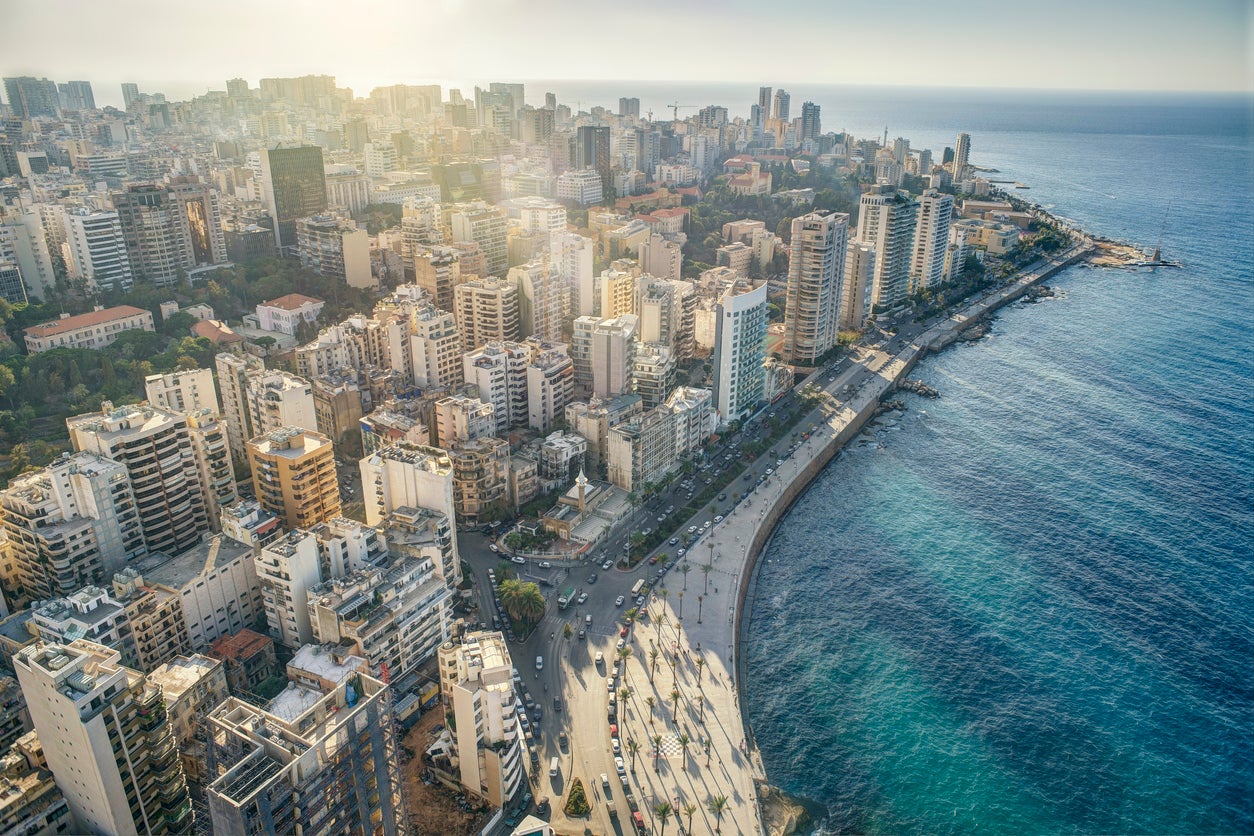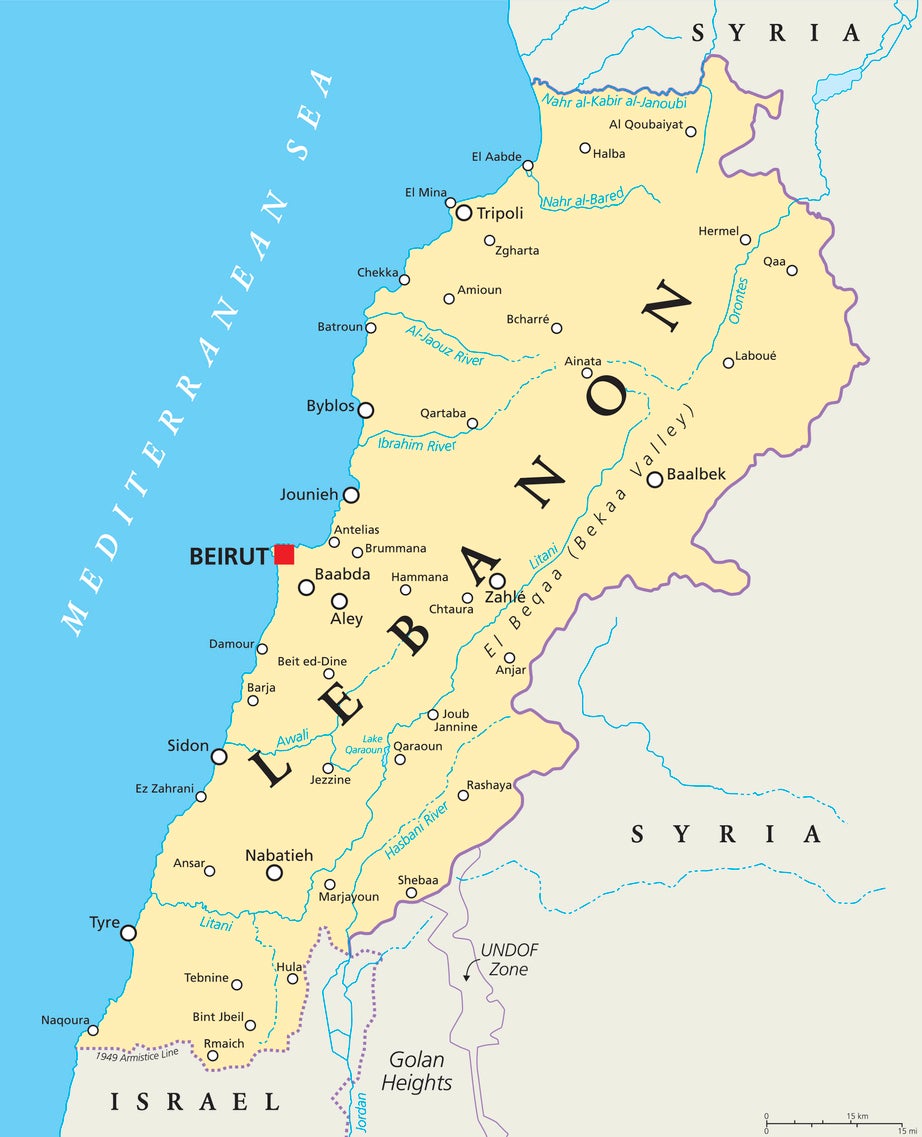Is it safe to visit Lebanon? Foreign Office advice as Britons encouraged to leave
The UK has warned citizens not to go to the Middle East country

Your support helps us to tell the story
From reproductive rights to climate change to Big Tech, The Independent is on the ground when the story is developing. Whether it's investigating the financials of Elon Musk's pro-Trump PAC or producing our latest documentary, 'The A Word', which shines a light on the American women fighting for reproductive rights, we know how important it is to parse out the facts from the messaging.
At such a critical moment in US history, we need reporters on the ground. Your donation allows us to keep sending journalists to speak to both sides of the story.
The Independent is trusted by Americans across the entire political spectrum. And unlike many other quality news outlets, we choose not to lock Americans out of our reporting and analysis with paywalls. We believe quality journalism should be available to everyone, paid for by those who can afford it.
Your support makes all the difference.Following the outbreak of war in Israel, anxieties in bordering countries have been rising amid fears the fighting will spread to neighbouring territories.
Lebanon shares a border with Israel to the south, and the historic tensions between the two are threatening to flare up again, with Hezbollah – a Lebanese militant group – an important component in the potential escalation of the conflict.
In recent days, the Israeli military have exchanged fire with Hezbollah along the border, and the Foreign Office withdrew some staff from the British Embassy in Lebanon early on the 6 November, citing the current security situation.
Here is the latest information on whether the country remains safe for foreign travellers.
Where is Lebanon?

Lebanon sits to the north of Israel, bordering Syria to the north and the east. The capital, Beirut, sits along the Mediterranean Sea, and was a target of Israeli bombings during the Lebanon War in 2006.
Skirmishes between Israel and militant groups have so far been limited to areas around the border in the south. Most recently, on 6 November it was reported in Lebanese media that a woman and three children were killed by an Israeli airstrike while travelling between the towns of Ainata and Aitaroun.
What does the Foreign Office say?
The latest update from the Foreign Office (FCDO), dated 6 November, states: “You are advised against all travel to the whole of Lebanon. If you are currently in Lebanon, we encourage you to leave now while commercial options remain available.
“If you are a British national in Lebanon, please register your presence, which includes recording your up to date contact information. You should fill in this form for every member of your family or group who is a British national. Your registration will allow us to share any updates.”
The update adds advice for those who cannot leave Lebanon, saying that “you should have a personal emergency plan that does not rely on the UK government and be prepared in case you need to leave quickly. However, if you cannot leave Lebanon, you should shelter in place if you judge it necessary and safe to do so.
“See safety and security and regional risks for information on known security risks in Lebanon and advice on how to keep yourself safe. You should still register your presence to receive updates and sign up to get email notifications when this travel advice is updated.”
As recently as 18 October, the official advice had been to avoid “all but essential travel” to much of the country, but this has changed in the wake of intensifying clashes and unrest. The FCDO states that “events in Lebanon are fast moving. The situation has potential to deteriorate quickly and with no warning.
“Commercial routes out of Lebanon could be severely disrupted or cancelled at short notice and roads across the country could be closed.
“Travel within or out of Lebanon is at your own risk. The FCDO cannot tell you whether it is safe to travel to any departure point within Lebanon. However, see safety and security for information on known security risks in Lebanon and advice on how to keep yourself safe.”
Regarding the conflict in Israel specifically, it says: “[The] FCDO advises against all travel to Lebanon due to risks associated with the conflict between Israel and the Occupied Palestinian Territories. There are ongoing mortar, artillery exchanges and airstrikes in South Lebanon, on the border with Israel. Tensions are high and events could escalate with little warning, which could affect or limit exit routes out of Lebanon.
“There is also a risk of civil unrest. There have been large protests outside embassies, including outside the US and French embassies on 17 October. Further protests are expected. British Nationals should exercise caution and avoid areas where demonstrations may be held.
“Due to the security situation, some staff at the British embassy and all family members of staff have been temporarily withdrawn. The embassy continues with essential work including services to British nationals.”
Additional security risks are present in Lebanon due to the threat of terrorism and kidnapping, with groups mainly operating in Tripoli, areas close to the Syrian border (such as around Hermel and Aarsal), Palestinian refugee camps and the southern suburbs of Beirut. The FCDO states that “terrorists are very likely to try to carry out attacks in Lebanon,” adding that violence may occur between security forces, protesters and supporters of political groups.
What about flights to and from Lebanon?
Flights from the UK to Lebanon are currently operating with a reduced schedule.
Will my insurance be invalid if I travel to Lebanon?
Anyone who chooses to travel to Lebanon will immediately have their travel insurance invalidated unless they have a specialist policy, as the FCDO advises against all travel to the country.
The conditions for cancelling your trip will be dependent on your provider, though if you have a trip already booked to Lebanon, you should be able to cancel and make an insurance claim as the Foreign Office is now advising against all travel there.
If already in Lebanon, contact your airline and insurance provider to find out the conditions of travelling home early.
Join our commenting forum
Join thought-provoking conversations, follow other Independent readers and see their replies
Comments